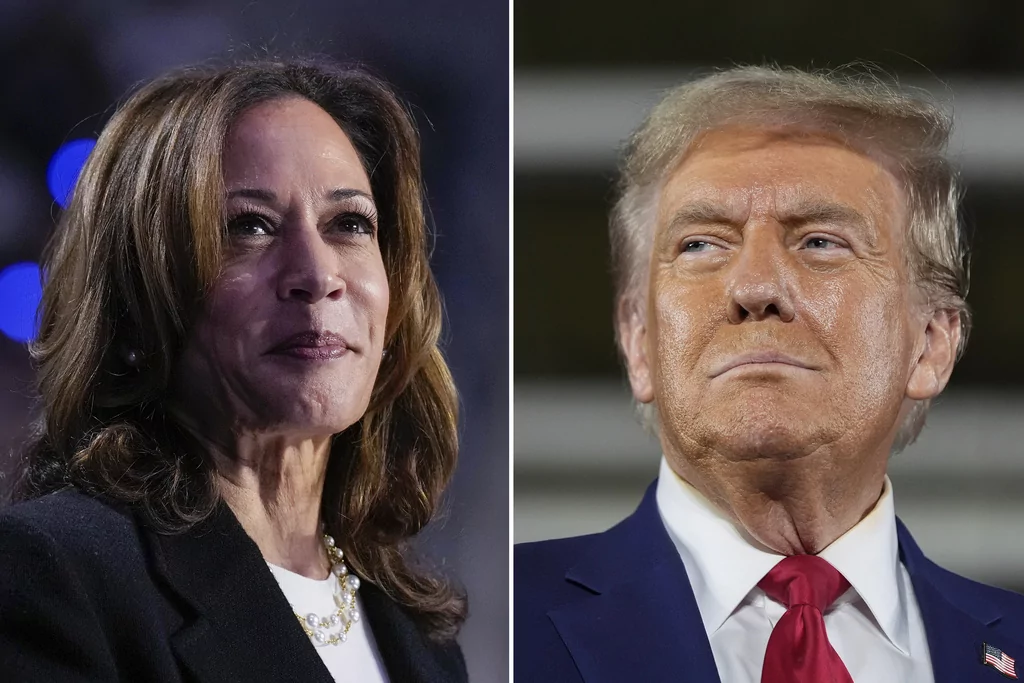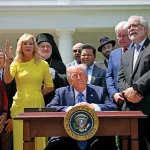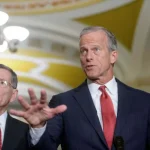

Harris trying to persuade voters who are ambivalent about both candidates in a bid to recreate President Joe Biden’s anti-Trump coalition from four years ago, stretching from the Bernie Sanders socialist Left all the way to Liz Cheney ex-Republicans on the center-right.
This has led to Harris trying to downplay issues that might divide that coalition, such as fracking and foreign policy, while remaining ambiguous about how liberal she is in most policy areas outside of abortion.
Harris has officially abandoned many of the positions she took during her 2019 presidential campaign, when she attempted to run to Biden’s left in the Democratic primaries, but mostly through aides rather than in her own voice. A recent Axios report labeled her the “no comment candidate.” Asked how she voted on a California ballot initiative that would stiffen criminal penalties for shoplifting and drug trafficking, for example, she replied, “I am not gonna talk about the vote on that because, honestly, it’s the Sunday before the election.”
THESE EIGHT STATES WILL LIKELY DECIDE WHO WINS THE 2024 PRESIDENTIAL ELECTION
The vice president delayed major media interviews after replacing Biden at the top of the Democratic ticket and did just one confrontational sitdown on Fox News. The benefit of this strategy has been to avoid giving Republicans easy opportunities to attack her as too liberal, but it comes with the risk of voters feeling as if they don’t know her. The progressive base is also more restive than in 2020, with Israel’s war in Gaza especially creating fissures among Democrats. Harris, like many Democrats in competitive Senate races this year, is attempting to tack to the center.
Trump, by contrast, is running more of a base turnout strategy. He has attempted some crossover appeal to anti-establishment former Democrats. A late campaign ad showcases Robert F. Kennedy Jr.. former RFK running mate Nicole Shanahan and Tulsi Gabbard alongside Trump running mate Sen. J.D. Vance (R-OH) and former GOP presidential candidate Vivek Ramaswamy. Pro-Trump social media accounts depict the five of them and the former president as the Avengers.
In the closing weeks of the campaign, Trump has sought to rally his hardcore supporters and these new disenchanted progressive converts with little emphasis on conservatives who might like his policies but disapprove of his temperament and judgment. That task fell to former U.N. Ambassador Nikki Haley in a Sunday op-ed for the Wall Street Journal.
“Millions of people love Donald Trump, and millions hate him,” Haley opened. “Each group will vote accordingly.” She mentioned the Jan. 6 Capitol riot prominently in her list of Trump’s “excesses.” But, she argued, the race isn’t just a referendum on Trump, as Democrats would have it.
“I don’t agree with Mr. Trump 100% of the time,” Haley wrote. “But I do agree with him most of the time, and I disagree with Ms. Harris nearly all the time. That makes this an easy call.”
Haley spoke at the Republican National Convention, but she hasn’t at this writing appeared with Trump on the campaign trail. Trump has not made appealing to current and former Republicans who are wary of him a major part of his closing argument, courting controversy with Liz Cheney chickenhawk remarks that were widely misconstrued as a call for the Harris-supporting ex-GOP lawmaker to face a firing squad. He has not kept quiet and let his ads or the seemingly GOP-friendly national environment do the talking for him.
Trump has instead kept up a busy rally schedule, cultivating his close emotional connection with his supporters and engaging in displays of political showmanship. Harris can’t match those kinds of performances, but neither can he come close to her rigid message discipline.
The two candidates go into Election Day tied in the national RealClearPolitics polling average. Trump has his best chance of winning the popular vote in his three presidential campaigns, while Harris’s backers were buoyed by a shock Des Moines Register poll that showed the Democratic nominee ahead in Iowa, which would support the idea that white anti-Trump voters can deliver her the presidency.
On the eve of Election Day, the campaigns reflected their different approaches. “We believe this race is going to be incredibly close,” Jennifer O’Malley Dillon, Harris campaign chairwoman, told reporters, emphasizing that vote counting could drag out in some states. “We are very focused on staying calm and confident throughout this period as the process goes through.”
CLICK HERE TO READ MORE FROM THE WASHINGTON EXAMINER
“President Donald J. Trump is going into Election Day stronger than he has in any previous election and if patriots across the country keep the momentum and out as expected on Election Day, we will be swearing in President Trump in January,” Trump campaign official Tim Saler wrote in a memo released on Monday.
The campaigns are channeling their candidates, with Trump and his team blustery while Harris and hers are cautious. Soon we’ll see which of them has read the electorate correctly.





